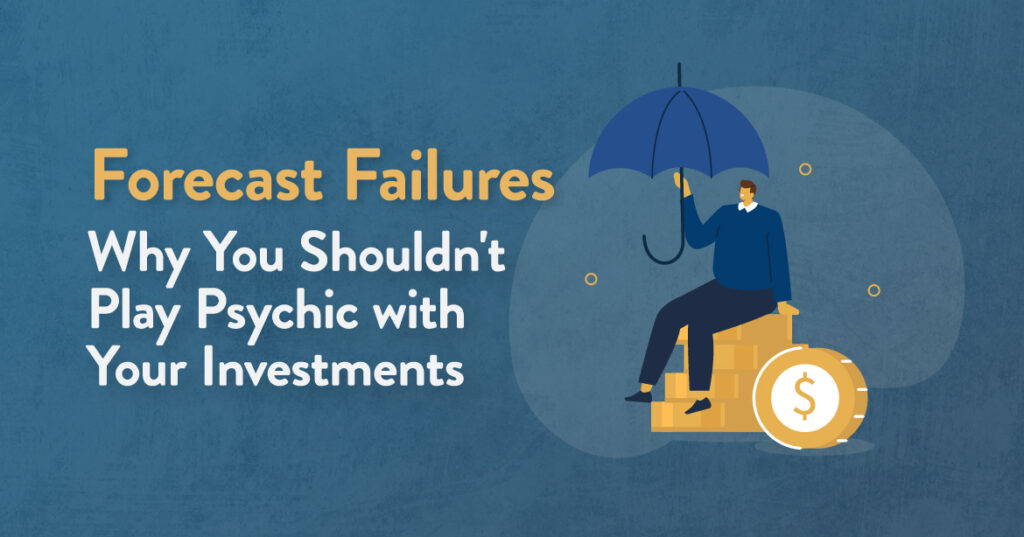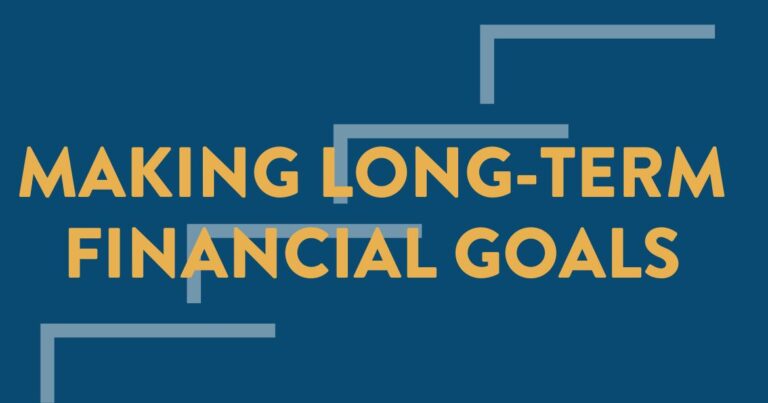Just like trying to nail a perfect March Madness bracket, I’ve learned the hard way not to put too much stock into economic predictions when it comes to investing. This March, my bracket was busted after the very first week – I didn’t even get one Final Four team right. It was a harsh reminder that no matter how confident the experts sound, predictions are just educated guesses at best. I recently sat down with Yahoo Finance to talk all about it. Here’s what you need to know…
The Lure of Supposed Foresight
I’ll admit, there’s an undeniable allure to the idea of being able to forecast the future, especially when it comes to my finances and investments. Wouldn’t it be great to know ahead of time exactly when the next recession will strike or how the markets will move over the next year? That sense of control and preparedness is deeply appealing to those of us striving for financial independence.
But here’s the hard truth – credible economists, analysts, and financial advisors will tell you that accurate long-term economic predictions are pretty much impossible. The data and commentary provide a snapshot, but projecting too far out is a “fool’s errand.” Building an investment strategy around those kinds of predictions often backfires.
The COVID Object Lesson
Take the COVID-19 pandemic as a prime example. Amid the terrifying economic uncertainty in March 2020, predictions of an imminent recession and market meltdown led many investors to panic and abandon ship on their equity holdings. But just four years later, the S&P 500 has skyrocketed 133% cumulatively since those lows. Anyone who bought into the doomsday forecasts and missed the remarkable rebound paid a huge opportunity cost.
Playing the Long Game
That’s why we advocate for taking a long-term view of at least 10 years or more when investing in stocks. While moderate adjustments to asset allocation may sometimes be prudent, making dramatic portfolio shifts based on 12-month outlooks is generally unwise. As I’ve learned, trying to outguess the market based on shaky predictions is often the wrong thing at the wrong time for the wrong reason.
Taming the Emotional Beast
Of course, having the conviction to stay the course is easier said than done when markets descent and recessionary fears are stoked. Our human tendency is to seek out any scrap of perceived guidance, however unreliable, to satisfy our anxieties about an uncertain future.
That’s where the value of an objective financial advisor really shines. We’re all emotionally invested in our money (myself included), but a financial advisor can apply rational analysis free from the grips of fear, exuberance, or any other emotional traps. A fiduciary advisor should act as a voice of reason and help you focus on a carefully constructed long-term plan rather than zigging at every new economic zag.
Separating Facts from Fiction
When you do choose to entertain economic forecasts, it’s best to evaluate the credibility and potential biases of the source. Is this pundit just trying to grab eyeballs by making provocative calls? Or do they have a proven track record of rigorously researched, data-driven analysis? Be highly skeptical of predictions meant to sell you on a specific product or viewpoint.
The inescapable reality is that even the most respected, unbiased economists frequently get it wrong when projecting too far out into the future. Looking back, innumerable high-profile experts loudly proclaimed a 2023 recession was essentially guaranteed – yet here we are well into the year with no imminent downturn in sight.
Bottom line: take economic forecasting with a healthy grain of salt, especially when it comes to shaping your long-term investment strategy and plans. Rely more on empirical data than the predictions du jour. And most importantly, never play psychic with your investments based on the words of any self-proclaimed economic fortune teller trying to part you from your wealth.
The opinions voiced in this video and blog are for general information only and are not intended to provide specific advice or recommendations for any individual. To determine which strategies or investments may be suitable for you, consult the appropriate qualified professional prior to making a decision




